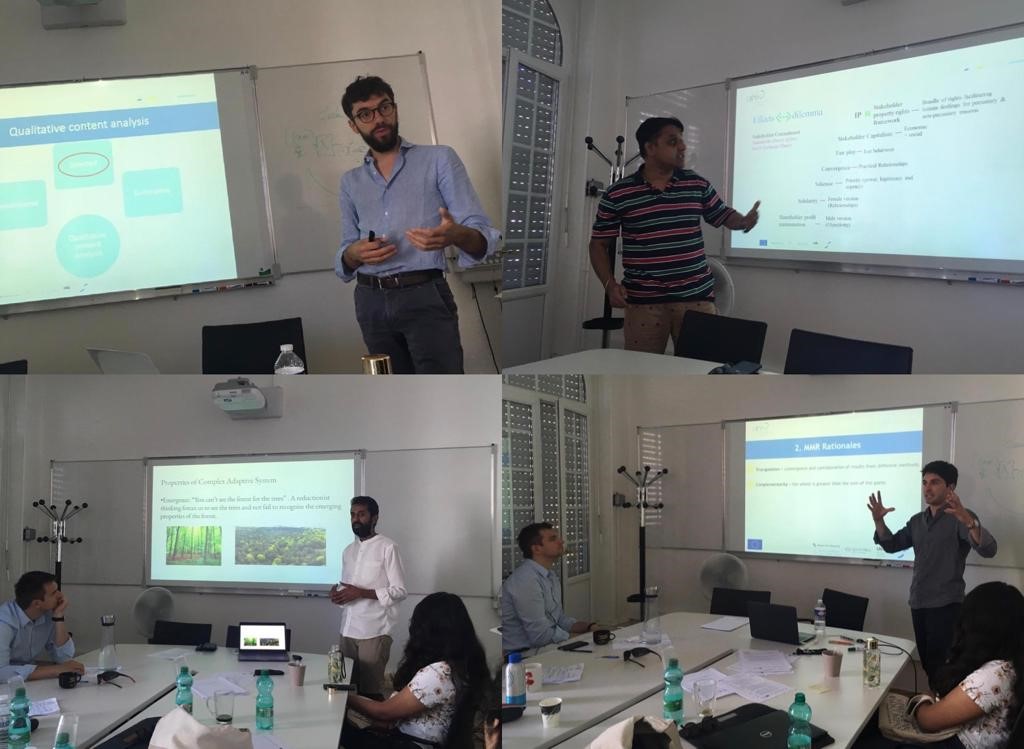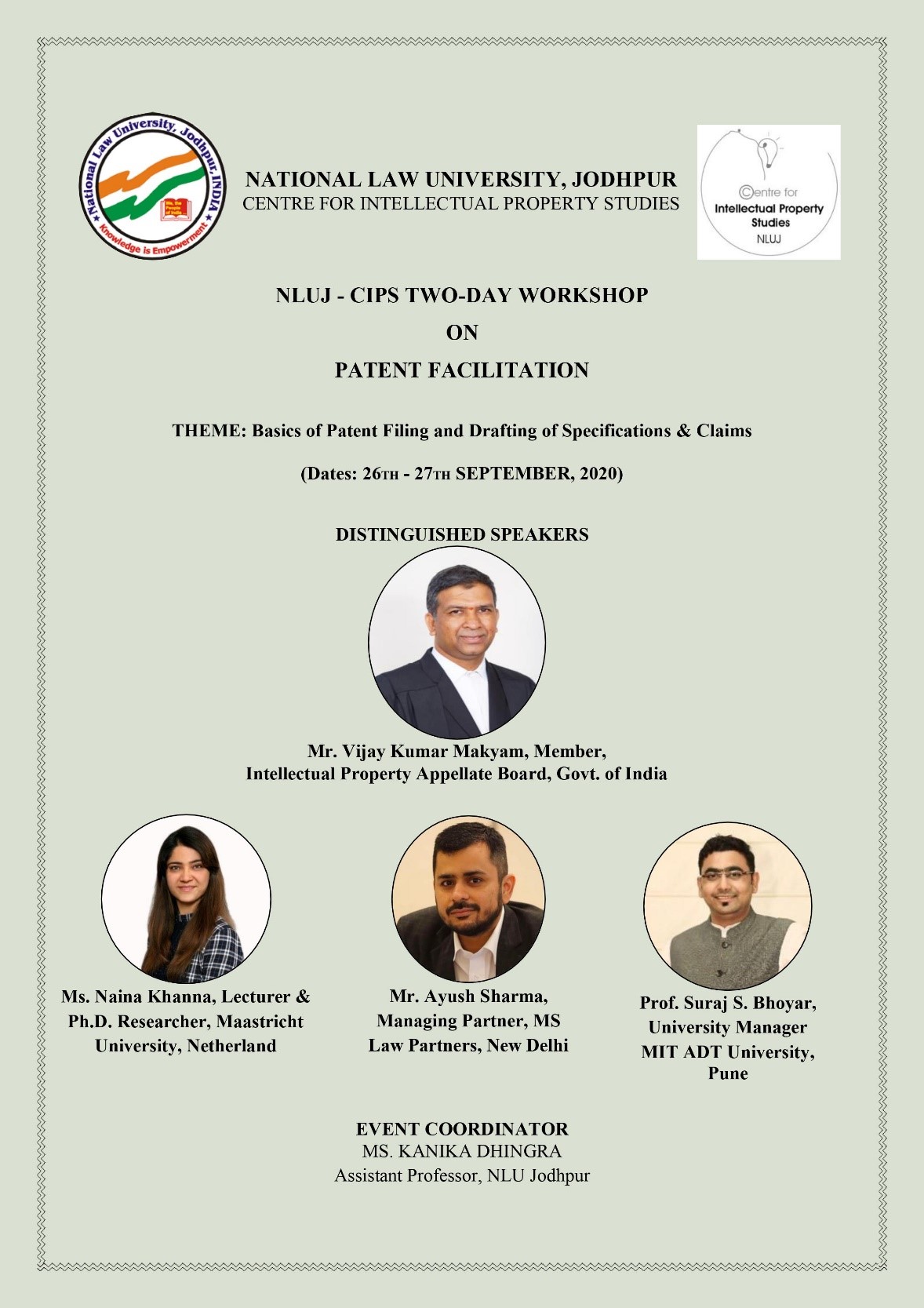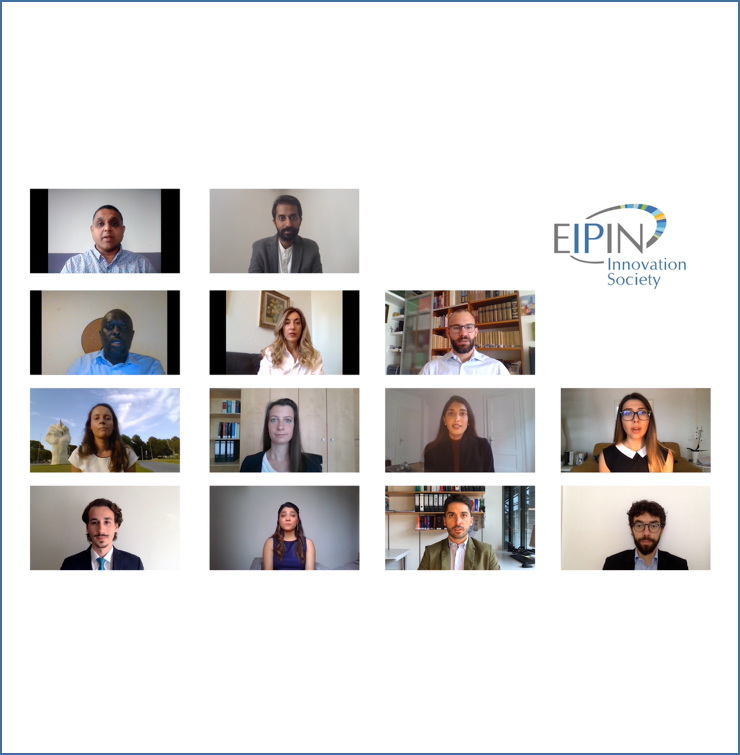Strasbourg, 29 June 2019 – As part of the CEIPI 2019 Interdisciplinary Research Week, ESRs 1,2,3 and 4 presented to the CEIPI and EIPIN IS Teams the empirical methods they employ in their researches.
Girish started by speaking about how micro agents/actors bring a macro change which forms the foundational thesis of complex adaptive systems. One of the methods namely Agent Based Modelling was introduced and was used in stimulating and analysing few complex adaptive systems and further stating how these tools can be used to study intellectual property systems. (presentation here)
Krishnamani explained and demonstrated interdisciplinarity with particular reference to his research topic. Delving on hurdles in conducting interdisciplinary research, Krishnamani highlighted critical focus areas that help (1) build an effective interdisciplinary theme; and (2) verify the same though empirical analysis. (presentation here)
Niccolò ventured the fundamentals of mixed empirical legal methods. In particular, Niccolò reviewed the basics of quantitative and qualitative methods, as he uses them to explore the evidence of patent aggregation in Europe. (presentation here)
Last but not least, Maurizio showed his practical application of ATLAS.TI for qualitative content analysis. Indeed, he coded all the single documents of EU geographical indications to improve the understanding of the relation between GIs and innovation. (presentation here)








Leave A Comment